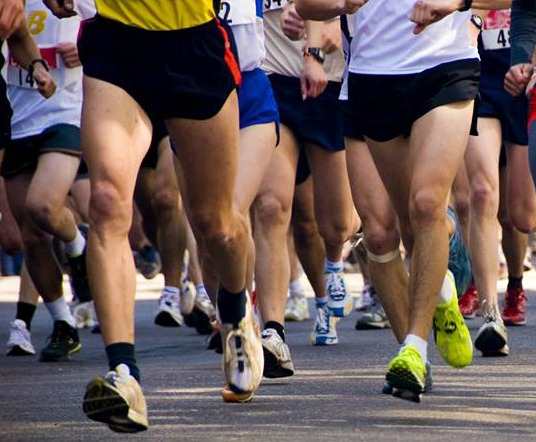22.04.15 Top Tips for Avoiding the Medical Tent on Marathon Day

These tips are compiled from a recent update lecture given by Dr Courtney Kipps, Assistant Medical Director for the London Marathon and Michael Crebbin, Specialist Sports Physiotherapist at Institute of Sport, Exercise & Health and in Association with the Princess Grace Hospital CPD programme.
The Last Few Days Leading Up To Your Run
- Try not to make any changes to your programme and environment - This means no new running shoes, running kit, or changes to your diet.
- Your training should be all done, if you feel you've missed some sessions through injury, your work schedule or for whatever reason do not try and fit them in in the last few days.
- Try and get some extra sleep in the days leading up to the run.
- If you're unwell in the lead-up to the event, take advice as to whether you should run or not. It is terribly disappointing to have to cancel at the last moment with all the effort and training but this is a major endurance event and illness in the days leading up to it can place your body at an increased risk of developing problems. A high temperature especially can place your body at risk of cardiac issues.
On the Day Itself
Hydration: How much is enough?
- The best advice is probably to use thirst as a guideline and drink small amounts - this way you are not in danger of over or under hydrating.
Anti-inflammatory Medication
- Many runners rely on these medications to help them cope with injury and minor musculoskeletal niggles. They do however have an effect on your kidneys and with the associated hydration changes in endurance running this can be a problem. So if you are on these medications stop well before Marathon day and don't any before or during the race.
Food & Drink
- Don't try any new snacks or exercise drinks on race day - stick to what you've been having during your long runs in training.
After the Race
- Keep moving on crossing the finish line - many people finish the run only to suffer a sudden drop in blood pressure when they stop moving causing fainting.
- Do your normal cool-down routine.
- If you have access to massage - it should be gentle and light only - heavy, deep tissue massage can aggravate normal tissue irritation following such a long run.
- A glass of wine or beer to celebrate your achievement is fine but avoid excessive alcohol which can overload your already taxed system.
- Cold contrast immersion can be helpful as can compression garments.
It is normal to feel stiff and sore after such an endurance feat. This should settle after 3-4 days after which you should seek assessment and treatment for any residual symptoms.
Good luck to all and have a wonderful day!
"Thank you so much for fixing my leg!"
AJ




Keep in touch
Established in 1998